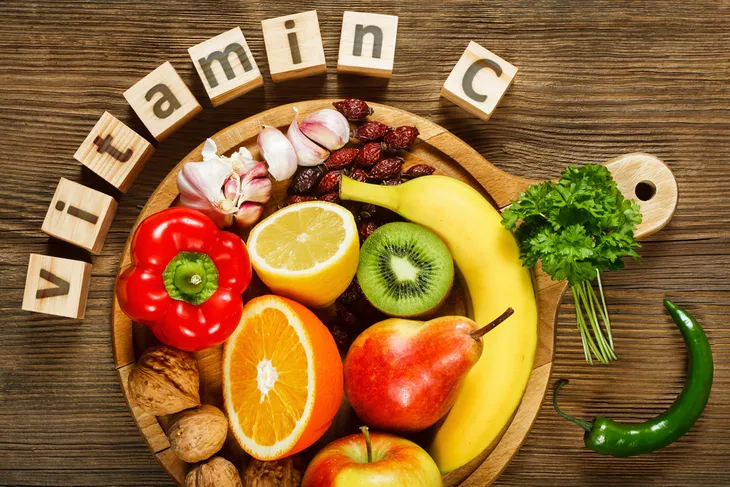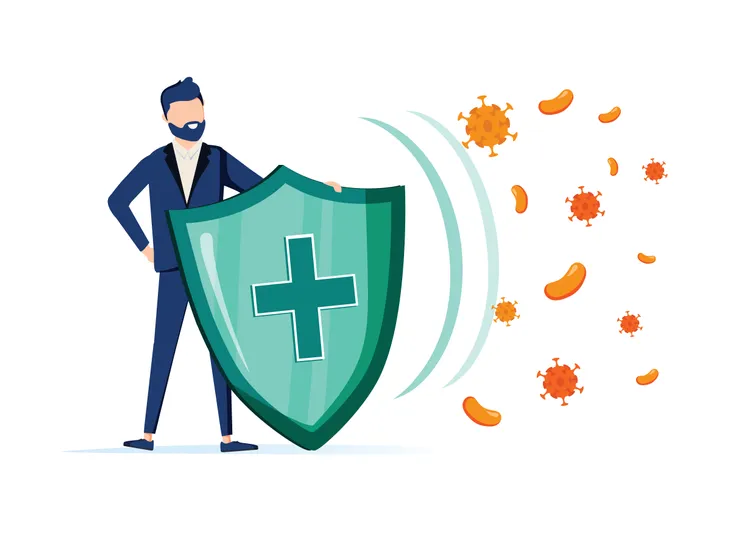It just so happens that with fall just around the corner that cold season is coming. So let me ask you an important question—what do you reach for at the first sign of a sore throat, stuffy nose, and tickle in your throat…sniff? If you pop vitamin C in the form of either a supplement, glass of juice, cup of tea or cough suppressant form, you’re not alone.
But does vitamin C really do anything to ward off a cold? Let’s find out…
What Is Vitamin C?
Vitamin C is most associated with oranges. However, the body requires this powerful antioxidant for strengthening immunity and fighting off illness as well as for iron absorption, and to keep blood vessels, bones, and muscles in strong working order.
While vitamin C is naturally occurring in oranges, you can also get a boost from any citrus fruits, mango, and kiwi. And don’t forget that fresh veggies—such as red and green bell peppers, broccoli and Brussels sprouts—are also super sources of C. If you’re not huge on salads, vitamin C can also be found in oral supplements and even flavored chewable tablets.
Effectiveness of Vitamin C on Cold Symptoms
While vitamin C has garnished a rep for warding off colds, there’s a void of scientific studies that can actually prove the vitamins effectiveness. In fact, much of the research is largely inconsistent and inconclusive.
For instance, a 2007 clinical study noted by WebMD was unable to prove that 200-milligrams of vitamin C taken daily had any effect whatsoever in efforts to reduce the frequency and symptoms of a cold. The study further notes that vitamin C was only able to reduce cold duration by a measly 8-percent at best.
Is Vitamin C a Fraud?
So am I saying that vitamin C is no better than a cold-fighting placebo? I wouldn’t dare! Instead, I’m looking to the experts at the U.S. Library of Medicine who call into question the ability of vitamin C to protect against getting a cold in the first place.
In fact, studies from the National Institutes of Health find that yes, large doses of vitamin C can help reduce how long a cold lasts, but the chances of it warding off a cold in the first place are slim to none.
How Much Vitamin C is Enough?
So even though popping vitamin C won’t scare away the common cold, it can reduce the duration of cold symptoms. After all, a natural way to boost immunity in a way closely related to vitamin C, is to boost your levels of the vitamin in the first place. But timing is everything.
For instance, the NIH indicates that residents of colder climates (I’m looking at you, Buffalo, New York) can increase their chances of catching a cold if they take vitamin C supplements regularly—versus taking a larger dose in one shot and eliminating it quickly from the body via urination.
So How Can You Ward Off a Cold?
Rather than taking large doses of vitamin C at the first sign of a stuffy nose and sore throat, experts suggest sticking to a balanced diet that incorporates your daily vitamin C (and other nutrients) naturally and safely via the foods you eat.
Remember, the recommended daily amount of vitamin C should not exceed 90-milligrams for men and 75-milligrams for women. High doses can result in an upset stomach and the development of kidney stones. You should always, always talk to your doctor before taking any supplement.








